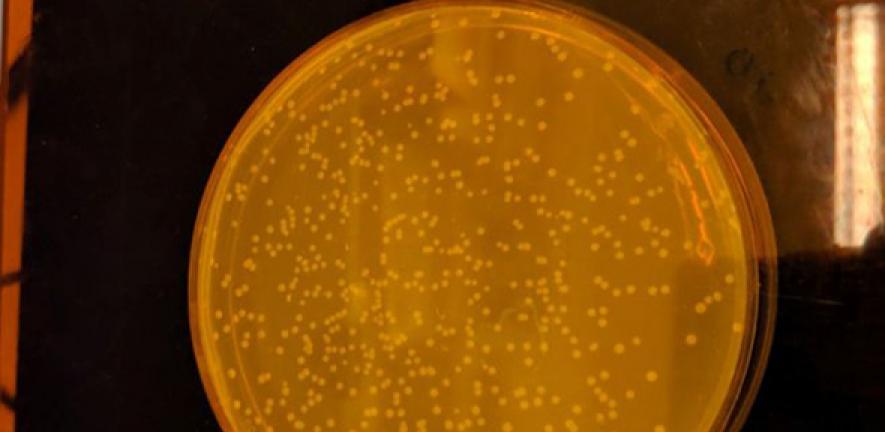
As reported in the journal Nature earlier this month, Jason and his team at the MRC Laboratory of Molecular Biology synthesised the entire genome of E. coli and gave it a new genetic code.
In doing so, they created a new lifeform - which they call Syn61 - and opened the doors to a whole new class of molecules and materials.
"The idea is not to make something that already exists as a known material better or faster," Jason, who is also Professor of Chemistry & Chemical Biology here, told the Cambridge Independent earlier this week, "but to unlock the potential to discover endless new types of material that we can't currently synthesis or access."
The creation of E. coli in which the entire four million 'base' genome is replaced with synthetic DNA is only the second time that a full genome has been synthesised. (The first was in 2010 when US geneticist Craig Venter synthesised the Mycoplasma bacterial genome.)
"The scale of genomic replacement in Syn61 is approximately four times larger than previously reported for genome or chromosome replacement in any organism," the researchers say in their paper published in Nature earlier this month. They had to develop new technology to take on the challenge.
As they report in their Nature paper, they will now take the methods, strategies and technology they developed during this project and use them as the blueprint for future genome syntheses.
The researchers selected the E. coli bacterium for this work because, though widely-known for the strain that causes severe stomach upsets, the bacterium is very useful as a biological model. "E. coli is a real workhorse in biology," Professor Chin told the Cambridge Independent. "So this is a practical choice both for studying basic biology and for biotechnology."
Their work has been widely reported both in local and national media. For detailed features on this research:
- You can read the Guardian article World’s first living organism with fully redesigned DNA created
- Hear Professor Chin talk about this work on the BBC Radio 4 programme The Life Scientific broadcast on Thursday 16th May.
- Read the paper published in Nature on 15th May: Total synthesis of Escherichia coli with a recoded genome

